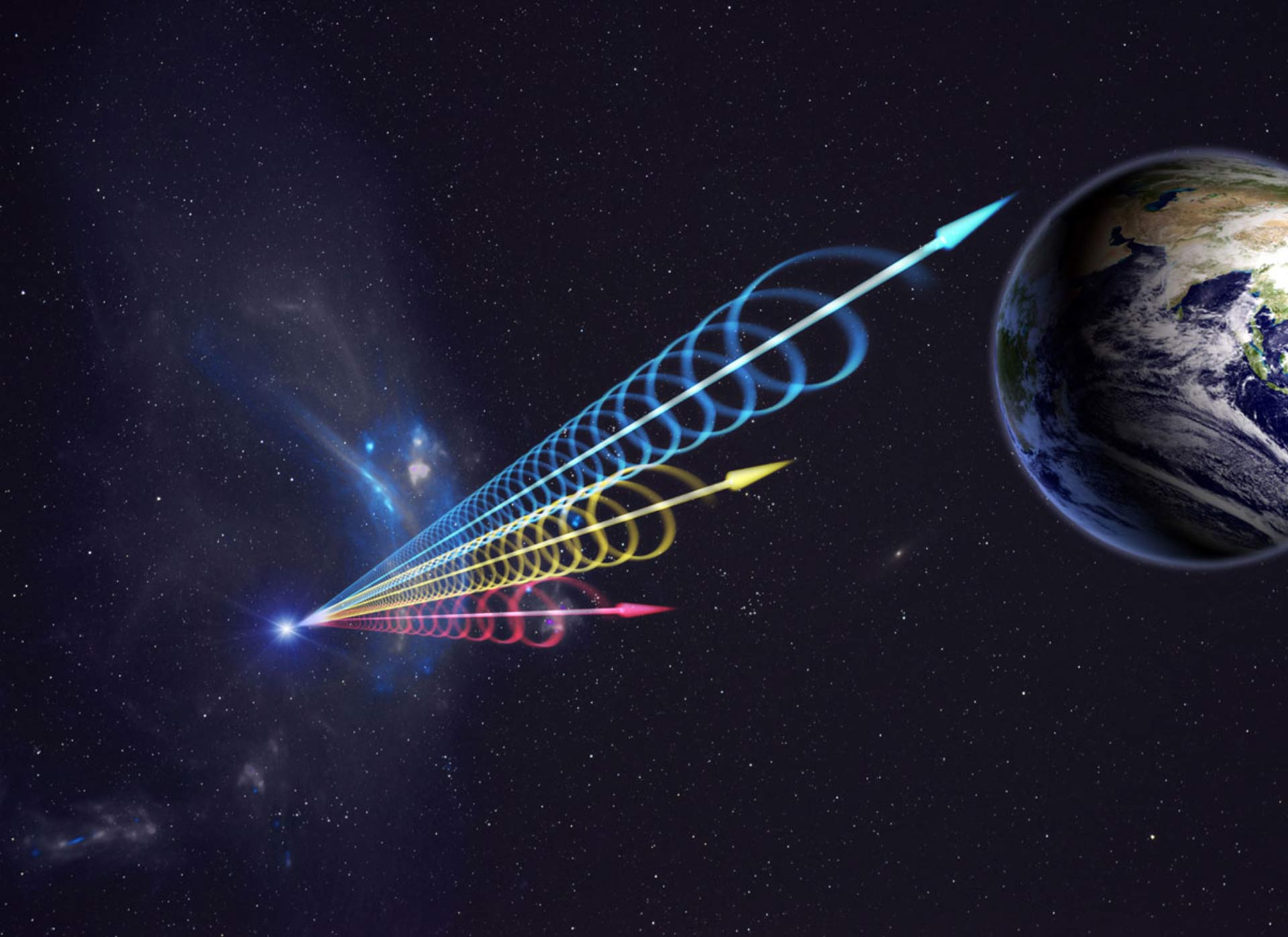In a momentous discovery, astronomers have detected an enigmatic burst of radio waves that embarked on an extraordinary journey of 8 billion years to reach Earth. Its location was pinpointed by the European Southern Observatory‘s Very Large Telescope in Chile, one of the most powerful optical telescopes.
This fast radio burst (FRB) is not only one of the most distant but also one of the most energetic bursts ever observed.
Fast radio bursts, often referred to as FRBs, are elusive phenomena, characterised by their intense, millisecond-long bursts of radio waves. Their origins remain shrouded in mystery, and their discovery dates back to 2007, paving the way for the detection of hundreds of these rapid, cosmic flashes emerging from various points across the universe.
The FRB, designated FRB 20220610A, may have lasted less than a millisecond, but during that infinitesimal fraction of time, it unleashed radio wave emissions equivalent to the Sun’s output over 30 years. This remarkable finding is outlined in a study published in the journal Science.
Read also: Ghana approves national space policy for sustainable development
Deciphering the Mysteries of FRB 20220610A
FRBs are known for their brevity, lasting only milliseconds, making them incredibly challenging to study. Thanks to radio telescopes, such as the ASKAP array of radio telescopes situated in Western Australia, astronomers managed to trace the origins of FRB 20220610A, which was detected in June 2022.
Dr. Stuart Ryder, an astronomer at Macquarie University in Australia and a coauthor of the study, shared, “Using ASKAP’s array of (radio) dishes, we were able to determine precisely where the burst came from.” He further explained that the European Southern Observatory’s Very Large Telescope in Chile was employed to pinpoint the source galaxy.
The result of this investigation pointed to a group of two or three galaxies that are currently in the process of merging, interacting, and forming new stars. This observation aligns with existing theories suggesting that fast radio bursts might originate from magnetars, highly energetic celestial objects born from the explosions of stars.
Weighing the Universe with FRBs
One intriguing aspect of fast radio bursts is their potential to address the question of “missing matter” in the universe. It is estimated that over half of the universe’s normal matter, the atoms that constitute our world, remains unaccounted for.
According to Ryan Shannon, a professor at Swinburne University of Technology and a coauthor of the study, “Fast radio bursts sense this ionised material.” Even in regions that appear nearly empty in space, these bursts can detect all the electrons, providing valuable insights into the amount of material present between galaxies.
The late Australian astronomer Jean-Pierre Macquart demonstrated this approach in 2020, known as the Macquart relation. Ryder affirmed, “Our measurements confirm the Macquart relation holds out to beyond half the known Universe.”
NFT market crashes as 95% of digital assets loses value-Study
The Promise of Fast Radio Burst (FRB)
To date, almost 50 fast radio bursts have been traced back to their origins, with around half of them being identified using ASKAP. This discovery confirms that FRBs are relatively common events in the cosmos and could be used to explore the matter between galaxies, contributing to a deeper understanding of the universe’s structure.
Astronomers are looking to the future with great anticipation, with the construction of new radio telescopes in South Africa and Australia. These cutting-edge instruments are expected to facilitate the detection of thousands more fast radio bursts from even greater distances. The potential impact is profound, as Ryan Shannon noted, “You can make a new map of the structure of the universe and use it to answer big questions about cosmology.” Fast radio bursts are set to continue unravelling the mysteries of the cosmos, illuminating our understanding of the universe.











